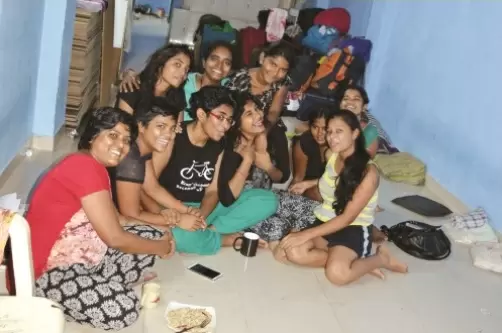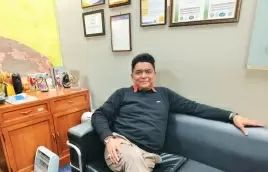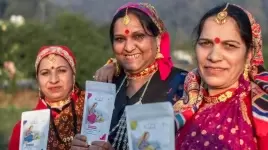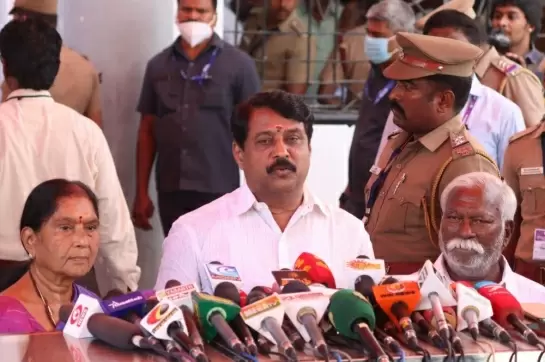Kranti is a home that prepares girls to realise their dreams and potential

30-November-2015
Vol 6 | Issue 48
It’s the early morning hour and there is hectic activity going on everywhere. The girls are rushing around trying to get ready for the day ahead.
There’s much laughter, chiding and comments going around. ‘Just look at her, she spends more than an hour everyday to get that perfect line of kajal!’; ‘there’s only one bathroom and one mirror here, it takes me time to get ready’; ‘come on, Pinky, I’m, hungry, please make the ‘poha’ fast and give it to me’; ‘have you given her some money to travel?’… All this chatter is quite familiar, isn’t it? Sounds like any normal household or perhaps a girls’ hostel.
 |
|
Like any normal household Kranti, too, is full of life, memories, banter and fun as the youngsters go about their well-chalked-out daily routine Photo: SurekhaKadapa-Bose\ WFS)
|
Well, it is indeed a home and a hostel but here’s the twist – it’s the happy home of 16 fearless daughters of sex workers from Mumbai’s Kamathipura, who live the dream of building a life very different from that of their mothers’.
It’s a tough world out there for the young ones; there’s the struggle to exist, to make ends meet, to fight prejudice, to earn people’s respect.
In fact, “tum randi ki beti ho, toh randi hi banogi (you are a prostitute’s daughter so you will become one, too)” is a statement they often get to hear from outsiders. However, within the four walls of their Kranti home each one of them has not just found a friend but also their very own “safe space” where they can “be ourselves” and not worry about being “judged for who we are”.
Enquire about their earlier life and they all have heartrending stories to narrate – of having borne violent physical, verbal and/or sexual abuse at a very young age. Some recall being trafficked; some of being violated in their own home by a close relative.
“But then, in this world who hasn’t been abused or felt the very real threat of being abused?” states Robin Chaurasiya, one of the women who set up Kranti.
“I am a product of violent physical abuse at home. But at Kranti we don’t see ourselves as victims. We are strong survivors,” she says proudly. Chaurasiya, whose family originally belongs to Indore, grew up in the US and served in the US Air Force for some years before coming back home to take on the mammoth task of rehabilitating girls from the Maximum City’s infamous Red Light area.
It was on one of her stints while volunteering for an anti-trafficking non-profit, first in Uganda and later in India, that Chaurasiya met Bani Das, one of the co-founders of Kranti. At the time, Das was working with the Mumbai-based NGO, Rescue Foundation, which is involved in the rescue and rehabilitation of victims of human trafficking from India, Nepal and Bangladesh.
A native of West Bengal, Das, the mother of an eight-year-old daughter, has experienced pain and cruelty, having been deserted by her husband. As the two women talked they realised they had many common experiences and were keen to reach out to those who had suffered a similar fate.
Tucking into her plate of ‘poha’ (savoury rice snack) Das elaborates, “Undoubtedly, at the Rescue Foundation the girls are rescued and then given skills-based training in stitching, cooking or cleaning. Yet, once they cross the age of 15 they are sent back home. What I observed was that the girls invariably end up coming back to the red light area after a couple of years saying that it was the only way they could survive. That upset me a lot.”
With the intention of creating a “different kind of set up” Das and Chaurasiya joined hands in the year 2000 with two other women, who, incidentally, are now married and have left Kranti to start their own organisation that empowers rescued girls.
The duo staunchly believes that the girls need to discover their passion, learn to survive with dignity and try to bring in change in the society.
As Chaurasiya explains, “Most NGOs teach what they think is ‘necessary’ for women to learn, essentially something that conforms to the age-old image of women being comfortable in the domestic arena. But what if young girls have other dreams such as becoming astronauts, singers, dancers, journalists, photographers, artists or academicians? We are trying to give these girls a chance to fulfill their passion.”
Fifteen years into operations and this registered non-profit has devised a “different way of tackling problems”. At Kranti, not just the girls but their mothers, too, can seek help. The young ones are free to spend some time with their mothers at Kamathipura for a few days and their mothers are welcome to drop in at Kranti whenever they want.
There is a counsellor-cum-clinical psychologist, who comes in every week to talk to them. Saloni Sawnani’s interactive sessions enable them to sort their mind.
“I don’t talk to them about their past unless they want to share. I help them to get back their confidence and learn to respect themselves.
“The world doesn’t allow them to forget their past. Besides, they are all strangers to each other when they come here from different parts. So naturally they have adjustment problems, too,” says Sawnani. Each member of the Kranti home, including Das and Chaurasiya, have to sit in during the counselling.
Of course, there is a well-chalked-out daily routine in place for the girls. After they get through their morning chores they make a beeline for the rooms that double up as their ‘school’ where they get an opportunity “talk and write about their personal issues” as well as learn “really interesting stuff from social sciences to understanding different aspects of gender, religion, caste, trafficking and law” before they go to regular college or vocational training centre.
The morning session of 40 minutes starts at 8am with prayers, yoga and meditation. General studies where they are taught geography, history, science, and so on, either using the Internet resources or through practical experience sharing led by Chaurasiya and other volunteers.
Thereafter, it’s time for compulsory journal writing. “They pen down whatever they want to. Some of them write well and have an amazing sense of humour,” remarks Chaurasiya. Kavita Hosmani, 21, who aspires to be a singer and is training in Hindustani classical music, adds enthusiastically, “Once journal time is over we watch a TED talk on some interesting issue. This is something that we thoroughly enjoy.”
The most significant lessons are imparted during the social science class where the girls talk of everything that is currently happening in the world. Once the classes are over they leave for college.
“I like the drawing classes best apart from dancing,” remarks Pinky Sheikh, 15, a dyslexic who has attended the US-based summer camp, ‘Songs of Hope’, where children from all over the world come together to learn performing arts.
Apart from Sheikh, Shweta Katti, whose mother is the in-house chef and mother-figure at Kranti, has been accepted into Bard College in New York and has been conferred with the UN Special Envoy for Education for the Youth Courage award.
Then there is Sheetal Jain, who has done a six-month course in drums from a music school in Washington, D.C. and is currently doing a course in drum therapy in Pune. Recently, the entire Kranti team toured the US staging their self-scripted and performed play, ‘Lal Batti Express’ on the lives of sex workers and their children.
It’s hard work keeping Kranti going, but Das and Chaurasiya are committed. Their dream for the future? Says Das, “To have a place of our own where we can support and secure lives of as many children as possible.” -Women's Feature Service














